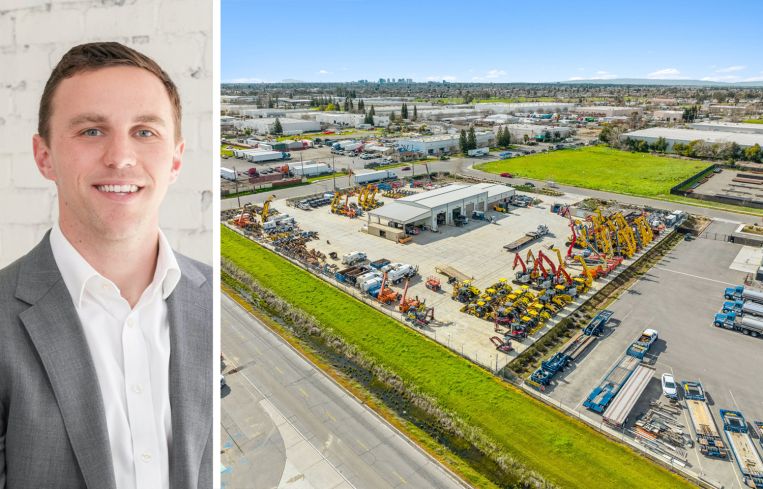Alterra Seals $67M Acquisition of 12-Site IOS Portfolio
By Cathy Cunningham July 22, 2025 10:30 am
reprints
There’s no summer slowdown for Alterra IOS.
The Philadelphia-headquartered firm just acquired 12 prime industrial outdoor storage (IOS) sites for $67 million, Commercial Observer can first report.
The IOS portfolio — purchased from an unnamed private, institutional owner — is fully leased to equipment rental company Herc Rentals, and dispersed over 43 acres across multiple markets, including Austin, Phoenix, Raleigh-Durham and Tampa. All of the IOS properties have been either built or renovated in the past eight years, and the deal also includes 165,000 square feet of warehouse space.
Marcus & Millichap’s Rory Shelby and Scott Gould negotiated the all-cash transaction.
“Over the past five years, Rory and Scott have done a number of deals with Alterra,” Mark Gannon, senior vice president of acquisitions at Alterra IOS, said with regard to how the opportunity came to Alterra. “We closed our first deal with them back in 2020, and we’ve since bought a number of assets with that team. They run a really smooth process, and have been a great partner to us, so we were top of mind when this portfolio came about.”
Since 2017, Alterra has acquired 350 IOS sites in 37 states. This latest portfolio — spread across transportation hubs in the South, Southwest and West Coast — fits well into Alterra’s strategy and geographical thesis.
“The assets are in markets where we’ve transacted in the past — which is important for us,” Gannon said. “We’re one of the few national operators of IOS with true exposure across the country. So this fit perfectly into our portfolio in terms of being complementary to assets we already own, and us having the wherewithal and transaction history in these markets to allow us to come in quickly, have a sense of what market conditions and rents are, and be able to move quickly on assessing the value of the deal.”
Alterra also had experience with tenant Herc Rentals as well as H&E Equipment Services, the latter being acquired by Herc just last month.
“We had a number of H&E assets in our portfolio as well as Herc, so we had a relationship with the real estate team on both sides, and we knew how they operated,” Gannon said. “We knew the quality of assets that they typically leased was very strong, and so it had all the makings of a good portfolio deal for us.”
As such, the deal’s underwriting was relatively straightforward, Gannon said, which was likely a relief seeing as the firm had a 45-day due diligence period for a 12-property portfolio.
Gannon credits Alterra’s team for the speedy process. “We have a transactions team that’s dedicated, day-to-day, to taking an asset through due diligence,” he said. “Our team takes what we said we were going to do on paper and makes it a reality.”
In the midst of the dog days of summer, Alterra has a robust pipeline in front of it and is closing “at least two transactions a week,” Gannon said, with deals ranging in size from $3 million to $70 million. Earlier this month, the firm closed a $344 million loan facility arranged by Truist Financial and Bank of Montreal, and secured by 64 IOS properties in 22 states.
Looking further ahead, Alterra is taking a long-term view of the IOS space.
“Volatility in the capital markets certainly changes pricing on a month-to-month basis, but our view is long term enough in this space that we’re going to continue acquiring assets at a pretty rapid pace and continue to scale our portfolio,” Gannon said.
That scaling is happening in spite of increased competition for IOS sites these days, and from tariff concerns that are impacting the industrial sector more broadly.
“I think what ultimately drives people’s interest in IOS is the supply/demand thesis,” Gannon said. “It’s very, very challenging to create new IOS, both from an entitlement and zoning standpoint, as well as a cost to construct. Folks certainly pay attention to what’s going on with tariffs — and tenant demand as it relates to tariffs — but ultimately there’s a diminishing supply of this type of industrial real estate, and so that should help rents increase over time and create more interest over time. So, by and large, it’s the supply and demand thesis here that outweighs that uncertainty right now.”
Cathy Cunningham can be reached at ccunningham@commercialobserver.com.



